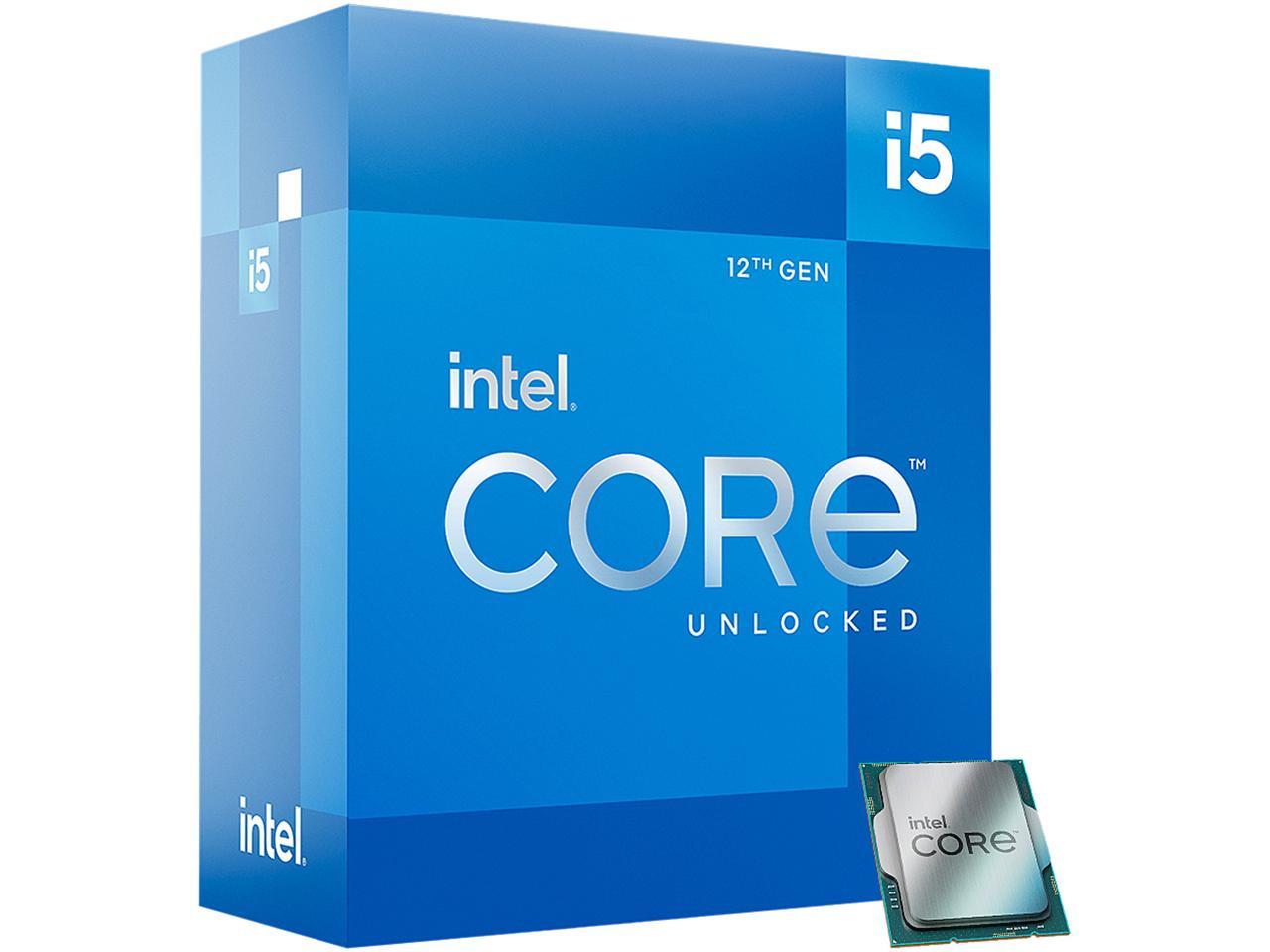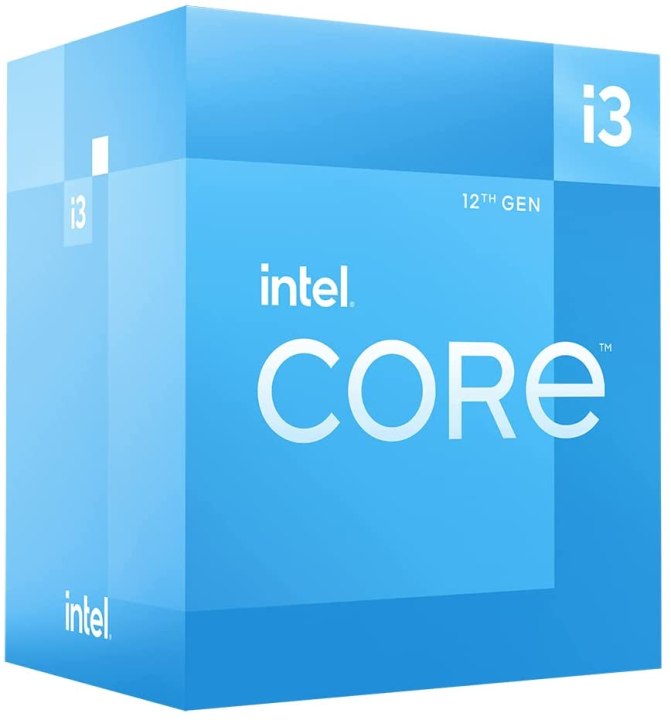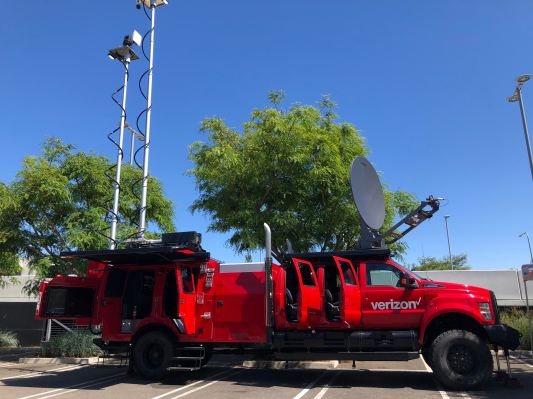The best Intel processors for 2024
Intel's best processors might pull a lot of power, but they're also super powerful. Here are the best Intel CPUs to buy in 2024.
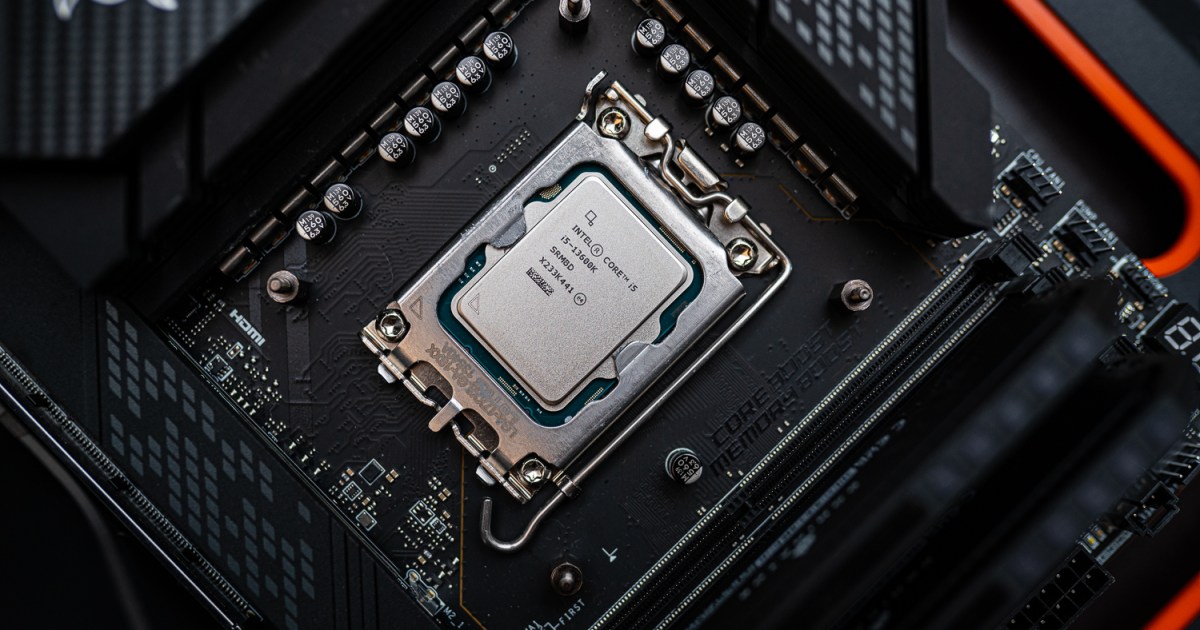
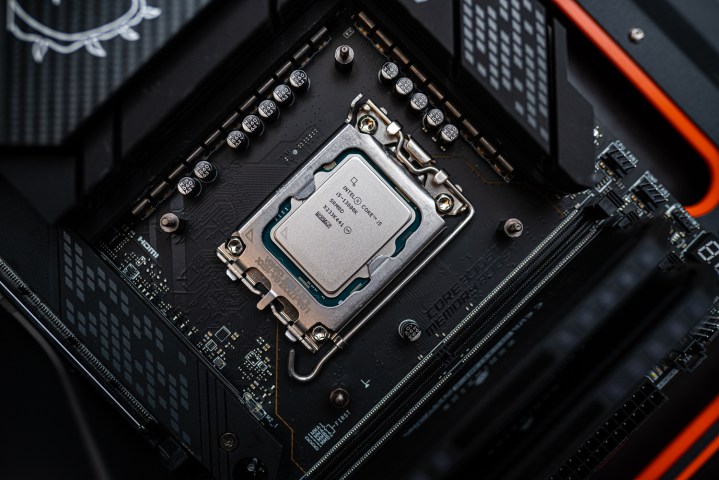 Jacob Roach / Digital Trends
Jacob Roach / Digital Trends
Even while facing downAMD's Ryzen 7000 processors, Intel offers stiff competition in productivity and gaming -- it just needs a bit more power to do it. The best Intel processor you can buy right now is the Core i5-13600K, but there are newer, faster options available if you're willing to pay for them.
From high-end gaming CPUs to some older 12th-generation CPUs that are under $100, Intel has a compelling option at just about every price point. The AMD versus Intel war rages on, but for fans of Team Blue, these are the best Intel CPUs you can buy today.
 Jacob Roach / Digital Trends
Jacob Roach / Digital Trends
Intel Core i5-13600K
The best Intel processor
Pros
Cheaper than AMD competition Support for 600-series motherboards and DDR4 Solid multi-core improvements Surprising gen-on-gen improvementsCons
High power demands Small gaming performance gainsWhy you should buy this: It's inexpensive, packed with cores, and offers much more performance than its price would suggest.
Who it's for: Gamers and power users who want peak performance without breaking the bank.
What we thought of the Intel Core i5-13600K:
The dilemma between Core i5 and Core i7 is always present with Intel processors, but the Core i5-13600K changes that dynamic. It's much cheaper than the 14700K while offering similar performance in both productivity tasks and gaming. In some cases, it even beats down the flagship Core i9-13900K, making it one of the best CPUs you can buy right now.
For around $250, you're getting a 14-core CPU with clock speeds upward of 5.1GHz, which would have been unheard of even a couple of years ago. Not all of those 14 cores are built equally, though. Similar to Intel's previous generation, the Core i5-13600K mixes performance (P) cores and efficient (E) cores. With the Core i5-13600K, you're getting six P-cores and eight E-cores.
The six P-cores are more than enough for gaming, which is what allows the Core i5-13600K to compete with AMD's Ryzen 5 7600X at a similar price. It's the extra E-cores where Intel shoots ahead, though, offering better multi-core performance in demanding tasks like video encoding and rendering.
You can overclock it for added performance too, helping it compete more readily with higher-end options in gaming and productivity.
For additional savings, look out for the 13600KF, as it can often be found for a few dollars cheaper. If you want to stretch your budget a bit further, the 13700K isn't much more and gives you a couple of extra cores to play with for increased performance in select apps and games.
Intel Core i5-13600K
The best Intel processor
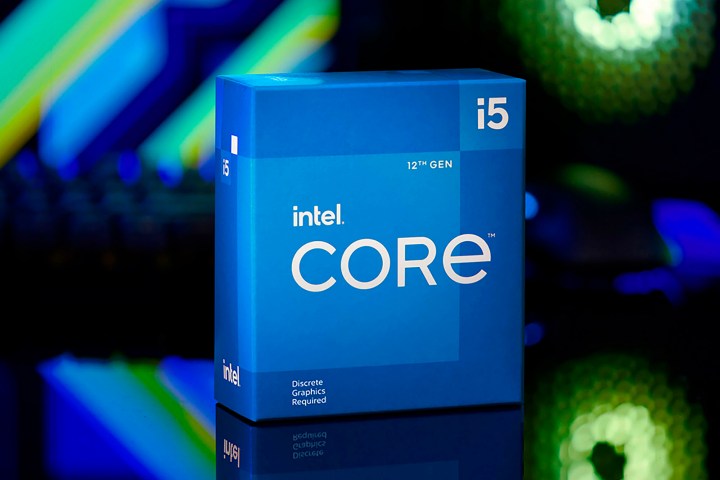 Intel
Intel
Intel Core i5-12400F
The best budget Intel processor
Pros
Excellent value Six cores on a recent architecture Fantastic gaming performanceCons
No integrated graphics Doesn't support overclockingWhy you should buy this: It's inexpensive while still offering highly competitive performance.
Who it's for: PC builders on a tight budget that only need a few cores.
What we thought of the Intel Core i5-12400F:
Intel always follows up its main releases with more budget-friendly options as a generation goes on, and unfortunately, they don't always get the limelight they deserve. That couldn't be more true than it is with the Core i5-12400F. For not much more than $100, you get a seriously powerful CPU for gaming and anything else besides.
This one comes from the last-gen Alder Lake range, but don't let that scare you off. Instead of a hybrid architecture, the Core i5-12400F opts for six performance cores and no efficient cores. That means you're still getting 12 threads, along with a boost clock speed of 4.4GHz.
Gaming is where the chip shines most, oftentimes only taking a backseat of 5% to 10% compared to the more expensive Core i5-12600K. You can push the processor further by removing its power limit, too, allowing it to rival even the Core i9-11900K from a couple of generations back. That's a lot of CPU power for around $100.
There are a couple of caveats for this one, though. For starters, it doesn't support overclocking, but you can still remove the power limit for a performance boost. In addition, it doesn't include integrated graphics, so you'll need to pair the CPU with one of the best graphics cards. You can pick up the Core i5-12400, which is the same CPU with integrated graphics, but it's about $25 more expensive.
Intel Core i5-12400F
The best budget Intel processor
 Jacob Roach / Digital Trends
Jacob Roach / Digital Trends
Intel Core i9-14900K
The fastest Intel processor
Pros
Big improvements in gaming performance Same pricing as previous generation Works with LGA1700 socket AI-assisted overclocking on 14900KCons
Minor productivity improvements Still slower than AMD 3D V-Cache chips Still very power hungryWhy you should buy this: It's the most powerful Intel CPU you can buy right now.
Who it's for: Anyone upgrading from 12th-gen or older.
What we thought of the Intel Core i9-14900K:
Intel's Core i9-14900K is a refresh, and because of that, it doesn't bring major performance improvements to the Core i9-13900K, which we'll get to next. For most people, the Core i9-13900K is still the CPU to buy. If you're looking for the absolute best performance, though, the Core i9-14900K offers it.
There are a few weak areas of Intel's last-gen chips that the Core i9-14900K improves on. It gets gaming performance close to AMD's Ryzen 9 7950X3D, and weak productivity tasks, such as compression, are better with the new 14th-gen chips. However, areas like rendering and transcoding remain largely unchanged compared to the previous generation.
Thankfully, Intel isn't charging more for the Core i9-14900K. If you're coming from Intel's 12th-gen or an older platform, it's a great upgrade path. Those already on 13th-gen, however, have very little reason to upgrade.
Intel Core i9-14900K
The fastest Intel processor
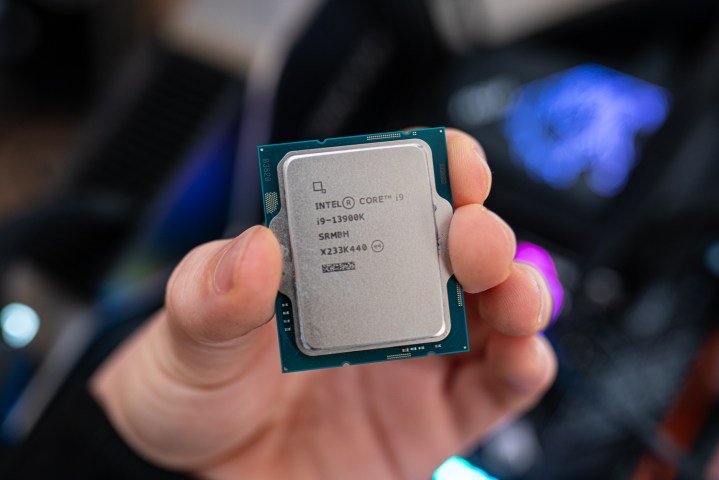 Jacob Roach / Digital Trends
Jacob Roach / Digital Trends
Intel Core i9-13900K
The best high-end Intel processor
Pros
Cheaper than AMD competition Support for 600-series motherboards and DDR4 Solid multi-core improvements Surprising gen-on-gen improvementsCons
High power demands Small gaming performance gainsWhy you should buy this: It's the best bang for your buck for high-end value.
Who's it for: High-end enthusiasts who don't mind spending up for the best of the best.
What we thought of the Intel Core i9-13900K:
The best Intel CPU on the market right now is undoubtedly Intel's Core i9-13900K, and that's surprising because it's not even the most expensive. At nearly $500, it's still a pricey chip, but the Core i9-13900K manages to undercut AMD's competing Ryzen 9 7950X while offering better performance in many cases.
No small part of that performance advantage is that the Core i9-13900K comes with 24 cores. You get eight P-cores and 16 E-cores, giving you a total of 32 threads to work with. Even more impressive, the processor can boost up to 5.8GHz out of the box, offering some of the highest clock speeds available in a desktop CPU right now.
Despite sporting the 13th-gen Raptor Lake architecture, you can still use older 600-series motherboards and DDR4 memory with the Core i9-13900K, too. That makes it a much more compelling (and cheaper) upgrade path if you haven't jumped to DDR5 quite yet.
The only downside of the Core i9-13900K is that it's too powerful. It runs hot and draws a lot of power, and in tasks like gaming, the cheaper Core i5-13600K offers almost identical performance. If you need peak horsepower, though, nothing beats the Core i9-13900K.
Intel Core i9-13900K
The best high-end Intel processor
 Jacob Roach / Digital Trends
Jacob Roach / Digital Trends
Intel Core i5-12600K
The best Intel processor for gamers
Pros
Inexpensive now that Raptor Lake is here Excellent gaming performance Relatively coolCons
Still requires a new motherboard Slightly outclassed by the Core i5-13600KWhy you should buy this: It's the best Intel processor for gamers.
Who it's for: Gamers who need a little extra bandwidth.
What we thought of the Intel Core i5-12600K:
If you're looking for the best gaming processor, it's hard to beat the Intel Core i5-12600K right now. It comes packed with 10 cores for around $175, with six performance cores and four efficiency cores. The performance cores shred through games, while the extra efficient cores provide some extra bandwidth for more demanding workloads.
The single-core improvements with Intel's 12th-gen processors shine with the Core i5-12600K. In games, it can nip at the heels of amazing gaming chips like the 5700X3D, a much more expensive CPU.
It also benefits from the hybrid 12th-gen architecture. This class of CPU is most commonly best for pure gaming. For gaming and streaming, we usually recommend bumping up a step. That's not the case with the Core i5-12600K. The 10 cores provide plenty of bandwidth for gaming and streaming, which is something we rarely see on a $170 CPU.
Intel Core i5-12600K
The best Intel processor for gamers
Intel Core i3-12100F
The best Intel processor under $100
Pros
A step-up over the Core i3-10100F Suitable for light gaming and daily use Good performance for the priceCons
Requires a discrete graphics cardWhy you should buy this: It's a cheap, yet decent current-gen processor that costs around $100.
Who's it for: Users on a budget who still want a versatile CPU.
What we thought of the Intel Core i3-12100F:
With the release of the current-gen Intel Alder Lake processors, many of the slightly older CPUs on this list were dethroned and replaced by their 12th-generation counterparts. There's no denying that this line of processors has been a good one for Intel, and this shows even through wallet-friendly models priced at close to $100 such as the Core i3-12100F.
Although it's firmly in the entry-level range, Intel Core i3-12100F offers excellent value for the money and can provide you with quite a large scope of things it's capable of doing. It should deliver much better performance than the previous budget king (Intel Core i3-10100F), and while yes, it does cost a little bit more, the price is pretty negligible considering the upgrade you're getting.
Equipped with four cores and eight threads as well as clock speeds reaching up to 4.3GHz, this processor is a bit of an oddity in the Alder Lake lineup, as it doesn't share the hybrid architecture of its more expensive siblings and instead serves up only P-cores. That doesn't make it unsuitable at all, however, and it will carry its own weight through both gaming and various daily tasks. It may not be your first choice if you want something truly powerful, but if you're looking to keep the costs low, this should be your go-to.
Intel Core i3-12100F
The best Intel processor under $100
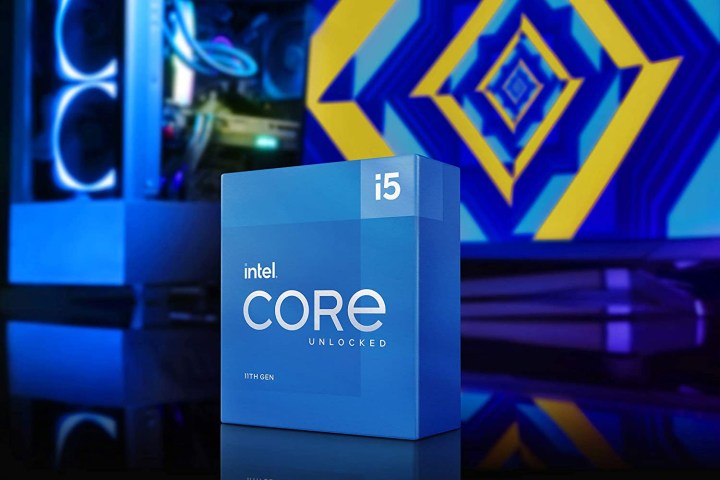 Intel
Intel
Intel Core i5 11600K
Best LGA 1200 Intel CPU
Pros
Strong performance from six Rocket Lake cores Powerful onboard graphics Competitive gaming performance with top 11th-gen chipsCons
Older generation Lacks efficiency coresWhy you should buy this: It's affordable, but offers strong performance on LGA 1200.
Who's it for: Buyers running older Intel PCs who still want a powerful CPU.
What we thought of the Intel Core i5-11600K:
If you're still running an older LGA 1200 system and want an affordable CPU upgrade, the Intel Core i5-11600K is still a great option. It offers six cores and 12-thread support, with a 4.9 GHz clock speed, giving this chip excellent gaming performance that can even compete with the top Intel Core i9 CPU from this generation.
Sure, it lacks some features and performance of the newer 12th-, 13th-, and 14th-generation Intel CPUs, but if you don't want to upgrade to that socket (and you probably shouldn't, since there's a new one coming with Arrow Lake), then you can get yourself a decent performance uplift with the Core i5 11600K.
Like most recent-generation Intel CPUs, this one still gets hot and draws a lot of power, but stick a powerful cooler on it and you'll have a great CPU for gaming or work.
Intel Core i5 11600K
Best LGA 1200 Intel CPU
Frequently Asked Questions
What’s the difference between K and F Intel processors?
Intel uses multiple suffixes to indicate different features, but "K" and "F" are among the most common. "K" processors are unlocked, so you can overclock them with a compatible motherboard. "F" processors don't come with integrated graphics, so you'll need a dedicated graphics card. You may even find a "KF" processor, indicating that it's unlocked and requires discrete graphics.
You can usually find variants of Intel's leading i9, i7, and i5 processors with either or both suffixes. If you're planning on building a gaming computer, you can save a few dollars by purchasing the "F" variant of a processor. On the other side, "K" processors are slightly more expensive with their overclocking capabilities. If you want a full breakdown on Intel's naming scheme, make sure to read our CPU buying guide.
How good are AMD Ryzen processors compared to Intel?
Intel Core and AMD Ryzen both offer excellent processors at different price points and in different forms, so one brand isn't definitively better than the other. In 2024, though, AMD's X3D CPUs are the best for gaming, while Intel's lineup tends to offer more general performance, at the cost of a higher power draw. The newer AMD Ryzen processors pack a lot of cores and perform well, so they're still very capable CPUs, but they're a little more specific in what they're good for.
In the mobile world, Intel used to dominate. Now, you can find devices with AMD Ryzen processors, too, and they perform great. That said, there is still a far greater number of machines that come with Intel processors, and they stack up well against the AMD competition.
How do you know which processor is best for your needs?
To find the best processor for your needs, you need to consider the applications you want to run. If you're into gaming, for example, a processor with strong single-core performance is a good choice because games usually stress only a handful of cores at a time. On the other hand, content creation applications like Adobe Premiere Pro and DaVinci Resolve can take advantage of a greater number of cores, so a processor with a lot of cores is better for them.
Those are good rules to follow. Games favor a fast processor over one with a lot of cores, and content-creation apps prefer more cores over faster ones.
How can you tell if a PC processor is any good?
The best way to tell if a PC processor is good is to look at individual benchmarks. Specs like core count and clock speed don't tell the full story — they only show what the processor is capable of within its own range of products. If you've settled on a certain brand or series, however, looking at core counts and clock speeds can show you where the processor sits in the range.
If you want to test your own processor, there are plenty of tools available. Cinebench is a great benchmarking tool that focuses solely on the processor, while PCMark 10 provides an overview of performance across a suite of day-to-day tasks.
Make sure you're buying a CPU from a recent generation that has at least six cores, and you should be alright.
How does Intel's CPU naming scheme work?
Intel's naming scheme can get a little confusing sometimes, but once you know your way around it, you'll be able to navigate every processor by heart without needing to check what it does.
Let's assume the processor you're trying to look up is called "Intel Core i9-14600K." The first part, Intel Core, refers to the brand of the processor. Intel has several brands that are not Intel Core, such as the low-end Intel Pentium or Intel Celeron. It also has some newer mobile CPUs, branded Core Ultra.
The second part is the brand modifier. This is important and refers to how powerful a particular CPU is within its generation. In adition to the budget i3, Intel also offers i5, i7, and i9. The i5 and i7 lines are typically midrange to high-end, and the i9 is reserved for high-end processors.
Moving on to the numerical part of the name, the first two digits refer to the generation of the processor. As an example, Intel's 14th-generation processors, Raptor Lake, all start with a "14." The final three digits refer to the specific model and also go up depending on how good a model is.
The letter at the end refers to the type of processor. There are many variants, so check them out on Intel's website if you want a full list. The most common ones include:
K - Unlocked (overclockable) F - No integrated graphics S - Special edition T - Low power, lower performance
 Astrong
Astrong 



